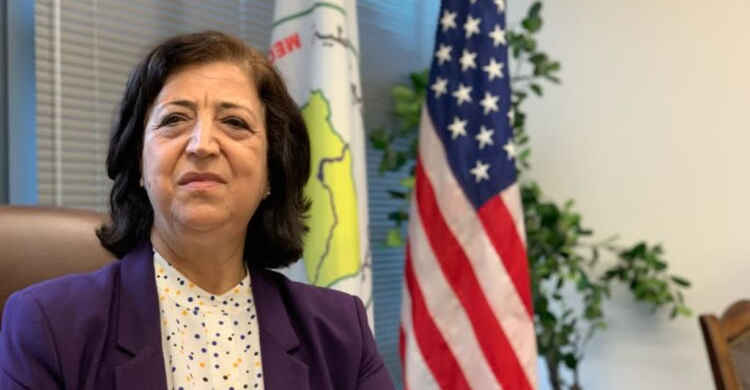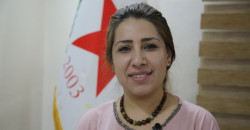SDC Envoy: Only federalism can hold post-Assad Syria together

Shafaq News/ The path to lasting stability in Syria lies in a federal, inclusive political system, as centralized rule will only deepen divisions in the post-Assad era, warned Sinem Mohammad Sherkani, the Syrian Democratic Council (SDC) Washington representative.
In an exclusive interview with Shafaq News, Sherkani emphasized that the SDC, along with a coalition of democratic and opposition forces, is advancing a political vision built on pluralism, decentralization, and federal governance. She described this model as the “only viable foundation” for a united Syrian state.
Sherkani confirmed that the US Administration maintains active communication with the SDC and continues its support for the Syrian Democratic Forces (SDF)—the military wing of the SDC—in the fight against ISIS in northeast Syria.
“The United States views our model with growing interest,” she said. “It recognizes the role of the SDF not only in counterterrorism but in preserving stability and inclusive governance in liberated areas.”
While the US has not formally endorsed federalism, Sherkani noted that officials in Washington “acknowledge that the centralized model has failed and that no durable solution is possible without equitable power-sharing.”
Her comments come amid significant political transition in Damascus. Ahmed al-Sharaa, a figure with a previously hardline stance, assumed the presidency following the end of Bashar al-Assad’s decades-long rule. Al-Sharaa faces deep structural challenges, with a fractured state, regional polarization, and sustained US sanctions under the Caesar Act*.
Sherkani said the SDC is prepared to engage with any political process that reflects the will of all Syrians, warning that exclusionary governance—whether under al-Assad or his successor—will not bring peace.
She also revealed that the US continues to pressure the Syrian government on core demands: the formation of a national unity government, withdrawal of foreign forces, and the safeguarding of minority rights.
“There is discussion in Washington about supporting a constitutional declaration that genuinely reflects Syria’s diversity,” she added, distancing herself from recent proposals in Damascus that drew domestic and international criticism.
Sherkani described the Autonomous Administration of North and East Syria (AANES), established in 2014 by Kurdish, Arab, and Syriac communities, as a living model of what a federal Syria could look like.
“The Autonomous Administration is not theoretical—it’s functioning. It has institutions, civil governance, and a defense force in the SDF, which continues to dismantle ISIS cells,” she said.
She stressed that the SDF is open to integration into a future Syrian national army within a new constitutional framework, but warned that any post-war settlement that ignores its role is “unrealistic.”
While US sanctions remain in place, Sherkani said there are discussions around limited humanitarian easing—but ruled out a full sanctions rollback in the short term.
“The Caesar Act was enacted for a reason. However, Washington is considering humanitarian exemptions, particularly in sectors like health and reconstruction,” she noted.
She concluded by calling for a comprehensive Syrian dialogue, inclusive of actors from within the Damascus government. “A decentralized, democratic, and federal Syria is not an option—it is the only formula for lasting peace,” she said.
*The Caesar Act, formally known as the Caesar Syria Civilian Protection Act, is a US law passed in December 2019 and enacted in June 2020 as part of the National Defense Authorization Act. It is designed to impose economic sanctions on the Syrian government—including President Bashar al-Assad and his allies—for war crimes and human rights abuses committed during the Syrian civil war.





